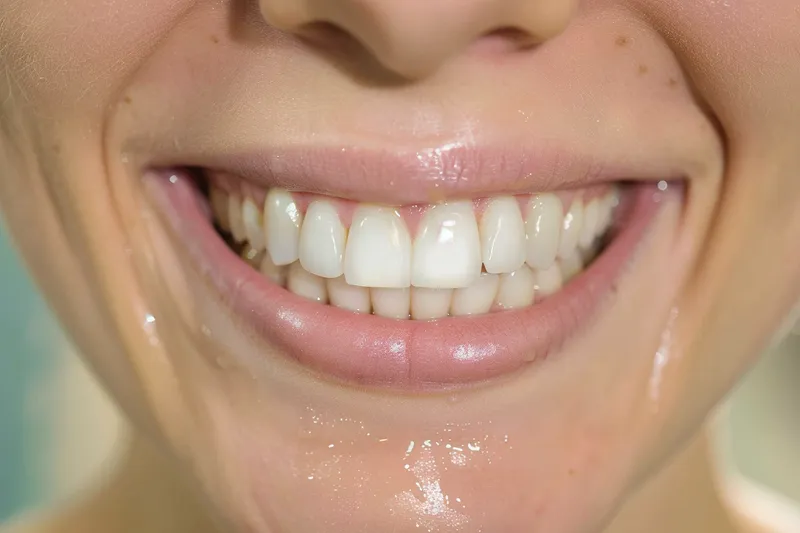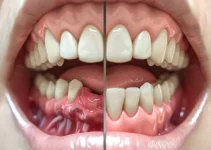Saliva flow plays a critical role in maintaining oral hygiene and preventing cavities, by naturally cleansing the teeth and gums. This fluid not only helps to remove food particles and bacteria but also neutralizes harmful acids that contribute to tooth decay. Moreover, saliva contains essential minerals such as calcium and phosphate that help repair and strengthen the enamel. Understanding how to enhance and maintain healthy saliva production can be key to preventing dental cavities and ensuring long-term oral health.
The Importance of Saliva Flow in Oral Health
Saliva is often an overlooked aspect of oral health, but it plays a crucial role in maintaining a healthy mouth. This fluid, produced by the salivary glands, is essential for various functions, ranging from the digestion of food to the protection of teeth and gums. A proper saliva flow helps to keep the oral environment balanced, which is vital for overall health.
Understanding the importance of saliva flow can help in identifying potential oral health issues early on. When saliva flow is disrupted, it can lead to a range of dental problems, including tooth decay, gum disease, and bad breath. Therefore, it’s crucial to be aware of how saliva contributes to oral health and what factors can impact its flow.
Functions of Saliva
Saliva serves multiple functions that are essential for oral health. One of its primary roles is to aid in the digestion of food. Enzymes present in saliva, such as amylase, begin the breakdown of carbohydrates right in the mouth. This initial stage of digestion is crucial for the proper absorption of nutrients later in the digestive tract.
Another important function of saliva is its protective role. It acts as a natural cleanser for the teeth and gums, washing away food particles and neutralizing acids produced by bacteria. This helps in preventing tooth decay and gum disease. Moreover, saliva contains antimicrobial agents that help to control the bacterial population in the mouth.
Saliva also plays a role in maintaining oral comfort and overall tissue health. It keeps the mouth moist, which is necessary for speaking, chewing, and swallowing. Without adequate saliva, these daily functions can become difficult and uncomfortable.
Saliva Composition
The composition of saliva is quite complex, consisting mainly of water, but it also contains various proteins, enzymes, electrolytes, and other organic and inorganic substances. These components work together to perform the various functions of saliva efficiently.
Proteins in saliva include enzymes like amylase and lipase, which are crucial for the digestion of carbohydrates and fats, respectively. Other proteins serve as antimicrobial agents, helping to keep the oral microbiome balanced and preventing infections.
Electrolytes such as sodium, potassium, and calcium play a role in maintaining the pH balance of the mouth and the remineralization of teeth. This helps in neutralizing acids produced by bacteria and repairing early carious lesions. Saliva also contains mucins, which are glycoproteins that give saliva its viscous nature. This viscosity is important for lubricating the oral tissues, making it easier to talk and swallow.
Factors Affecting Saliva Flow
Several factors can impact saliva flow, leading to a condition known as xerostomia or dry mouth. One of the most common causes is medication. Many prescription and over-the-counter drugs list dry mouth as a side effect. These include antihistamines, decongestants, antidepressants, and certain antihypertensive medications.
Age is another factor that can affect saliva production. As people age, there is a natural decline in saliva flow. This is often compounded by chronic illnesses and the medications used to treat them.
Dehydration can also lead to reduced saliva flow. When the body is dehydrated, it conserves water, and saliva production decreases. It is essential to maintain adequate hydration for optimal saliva production and overall health.
Certain medical conditions, such as diabetes, Sjögren’s syndrome, and Alzheimer’s disease, can also affect saliva flow. These conditions either directly impact the salivary glands or lead to behaviors that reduce saliva production.
Recognizing these factors and addressing them promptly can help maintain healthy saliva flow, contributing to better oral and overall health.
Stay tuned for more insightful articles on oral health and how to maintain it. Our next article will delve into the latest advancements in dental implants and their impact on patient outcomes. Don’t miss it!
Saliva and Cavity Prevention
Saliva plays a crucial role in maintaining oral health and preventing dental cavities. Scientific studies have shown that the presence of an adequate amount of saliva in the mouth significantly reduces the risk of developing dental caries. This article delves into the importance of saliva and how it contributes to cavity prevention.
Understanding the mechanisms behind salivary function can help individuals better appreciate its role in oral health. Not only does saliva serve as a natural lubricant, but it also contains compounds that actively protect against tooth decay. Let’s explore how saliva helps in cavity prevention and why maintaining its flow is essential.
Saliva composition and its production are influenced by various factors, including hydration, diet, and overall health. Recognizing these factors and taking steps to improve saliva production can greatly contribute to a healthier mouth and a lower incidence of cavities.
How Saliva Helps Prevent Cavities
Saliva contains several key components that are essential in protecting teeth against cavities. These components include electrolytes, proteins, enzymes, and antibacterial compounds. Together, they create an environment in the mouth that is less conducive to the formation of dental caries.
Firstly, saliva helps to neutralize acids produced by bacteria in the mouth. After eating, the bacteria on your teeth metabolize sugars and produce acids that can erode tooth enamel. Saliva’s buffering capability neutralizes these acids, thereby reducing the risk of enamel demineralization and cavity formation.
Secondly, saliva contains proteins and minerals such as calcium and phosphate, which are vital for the remineralization of tooth enamel. These minerals help repair enamel in its early stages of decay, preventing the progression to more severe cavities.
Additionally, saliva has antibacterial properties that inhibit the growth of harmful bacteria. Enzymes like lysozyme and lactoferrin attack and break down the cell walls of bacteria, while antibodies such as immunoglobulin A (IgA) neutralize bacterial toxins. This antibacterial activity helps maintain a healthy balance of oral microbiota.
Boosting Saliva Flow for Better Dental Health
Saliva plays a crucial role in maintaining oral health. It serves as a natural defense mechanism against tooth decay and gum disease, helps in digestion, and keeps the mouth tissues lubricated. Enhancing saliva flow can, therefore, have significant benefits for your dental health. In this article, we will explore various ways to boost saliva production through diet, hydration, and lifestyle changes.
Normal saliva production ranges from 0.5 to 1.5 liters per day, but various factors like stress, medication, and certain medical conditions can reduce this flow. Increasing saliva flow naturally can be an effective way to counteract the dryness and its associated risks. Let’s delve into the different methods to enhance saliva flow.
Diet and Saliva Flow
What we eat has a direct influence on saliva production. Certain foods can stimulate the salivary glands to produce more saliva. Foods that are high in fiber, for instance, can promote increased saliva flow. Including more fruits and vegetables in your diet, such as apples, carrots, and celery, can help in this regard.
Additionally, foods that require more chewing, such as nuts and seeds, also tend to increase saliva production. Chewing itself stimulates the salivary glands, making it a simple yet effective way to boost saliva in the mouth. Here are some dietary tips to enhance saliva production:
- Consume fibrous fruits like apples and pears.
- Include vegetables that need a lot of chewing, such as carrots and celery.
- Snack on nuts and seeds.
Moreover, acidic foods like citrus fruits can stimulate saliva flow. However, it’s essential to balance these with non-acidic foods to prevent enamel erosion. Drinking water with a slice of lemon can also be an effective way to naturally boost saliva production.
Hydration and Saliva Production
Staying well-hydrated is essential for maintaining adequate saliva flow. Dehydration can significantly reduce the body’s ability to produce saliva, leading to dry mouth, which can contribute to dental issues such as tooth decay and bad breath. Drinking plenty of water throughout the day ensures that the salivary glands are adequately supplied to function optimally. Experts recommend drinking at least eight 8-ounce glasses of water a day, though this can vary depending on individual needs and environmental factors. Drinking water not only helps in saliva production but also washes away food particles and bacteria, contributing to overall oral cleanliness.
Besides water, other hydrating beverages like herbal teas can also contribute to saliva production. However, it is advisable to avoid drinks that can dehydrate you, such as caffeine and alcohol. Proper hydration supports the efficiency of all bodily functions, including the production of saliva.
Lifestyle Changes to Enhance Saliva Production
Adopting specific lifestyle changes can also help in boosting saliva flow. One simple yet effective method is to chew sugar-free gum or suck on sugar-free candies. These actions stimulate the salivary glands, encouraging more saliva production.
Another lifestyle modification involves practicing good oral hygiene. Regular brushing and flossing not only keep your mouth clean but also stimulate the gums and promote saliva flow. Using a mouthwash specifically designed to combat dry mouth can also be beneficial.
Stress management techniques like meditation and deep-breathing exercises can further help in increasing saliva production by reducing stress-related dryness. A relaxed state allows the body to function more effectively, promoting overall health, including oral health.
Lastly, quitting smoking is essential. Smoking not only dries out the mouth but also inhibits the salivary glands, reducing saliva production. Thus, quitting smoking can significantly improve saliva flow and overall dental health.
Understanding and implementing these methods can make a significant difference in your oral health. Stay tuned for more insightful articles aimed at enhancing your dental and overall well-being.
Common Questions About Saliva Flow and Cavity Prevention
Explore how saliva contributes to dental health and how it helps prevent cavities.
How does saliva help in preventing cavities?
Saliva plays a crucial role in cavity prevention mainly through remineralization, where minerals like calcium and phosphate are supplied to teeth, neutralizing acidic conditions created by bacteria in plaque. It also helps wash away food particles and debris, reducing the likelihood of cavity formation.
Can increasing saliva flow help improve oral health?
Yes, increasing saliva flow can significantly enhance oral health. It helps maintain a healthy pH balance in the mouth, further inhibiting the growth of cavity-causing bacteria. Chewing sugar-free gum or staying hydrated can naturally boost saliva production.

My name is Salman Kapa, a 73-year-old expert in bone regeneration and dental implantology. With decades of experience in the field, I am dedicated to advancing our understanding of oral health and hygiene. Through my research and writing, I aim to contribute to the development of innovative solutions in dental care.




